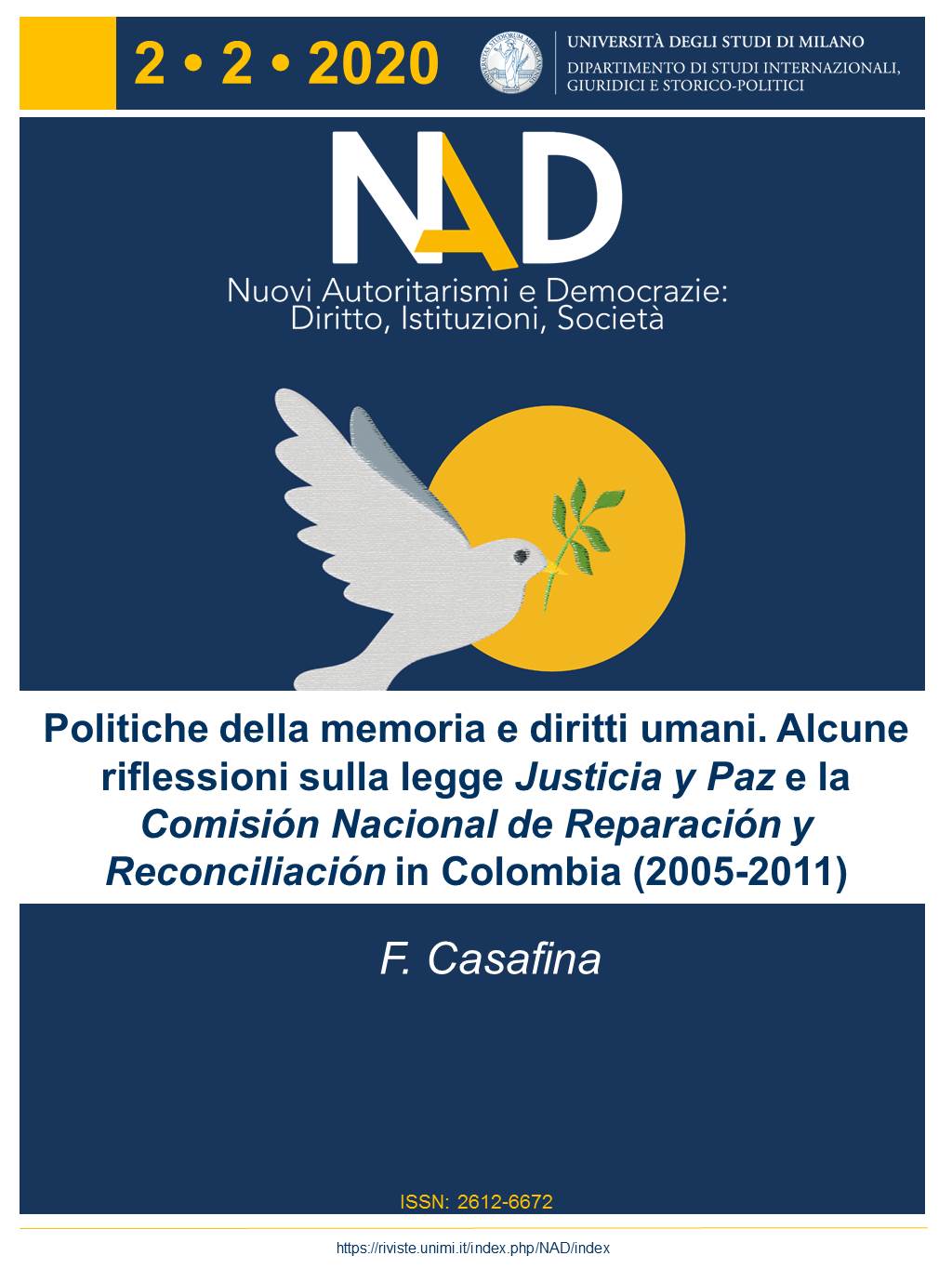Politiche della memoria, vittime e diritti umani. Alcune riflessioni sulla legge Justicia y Paz e la Comisión Nacional de Reparación y Reconciliación in Colombia (2005-2011)
DOI:
https://doi.org/10.13130/2612-6672/14683Parole chiave:
Truth Commissions, Human Rights, Colombia, Memory, Justice.Abstract
Since the 1980s, many Latin American countries have experienced processes of political transition, with differences depending on the respective national contexts. Some of these countries emerged from a situation of armed conflict (Guatemala and Peru); while others experienced a transition from dictatorship to democracy (Argentina, Bolivia, Uruguay and Chile). In the early twenty-first century the Colombian government led by Álvaro Uribe Vélez started a very unique process of transition when the armed conflict was still ongoing. Two of the most important measures have been the demobilization of the paramilitaries groups and the Colombia’s Justice and Peace Law, intended to provide truth, reparations and justice for the victims, while a newly created National Reparations and Reconciliation Commission (Comisión Nacional de Reparación y Reconciliación) has been in charge in guaranteeing the real application of these measures. Justice and Peace Law was widely criticized in particular regarding human rights. The objective of this essay is not to provide answers, but rather to bring up some reflections on the experience of Justice and Peace Law and the CNRR with a focus on historical memory, truth and justice.










